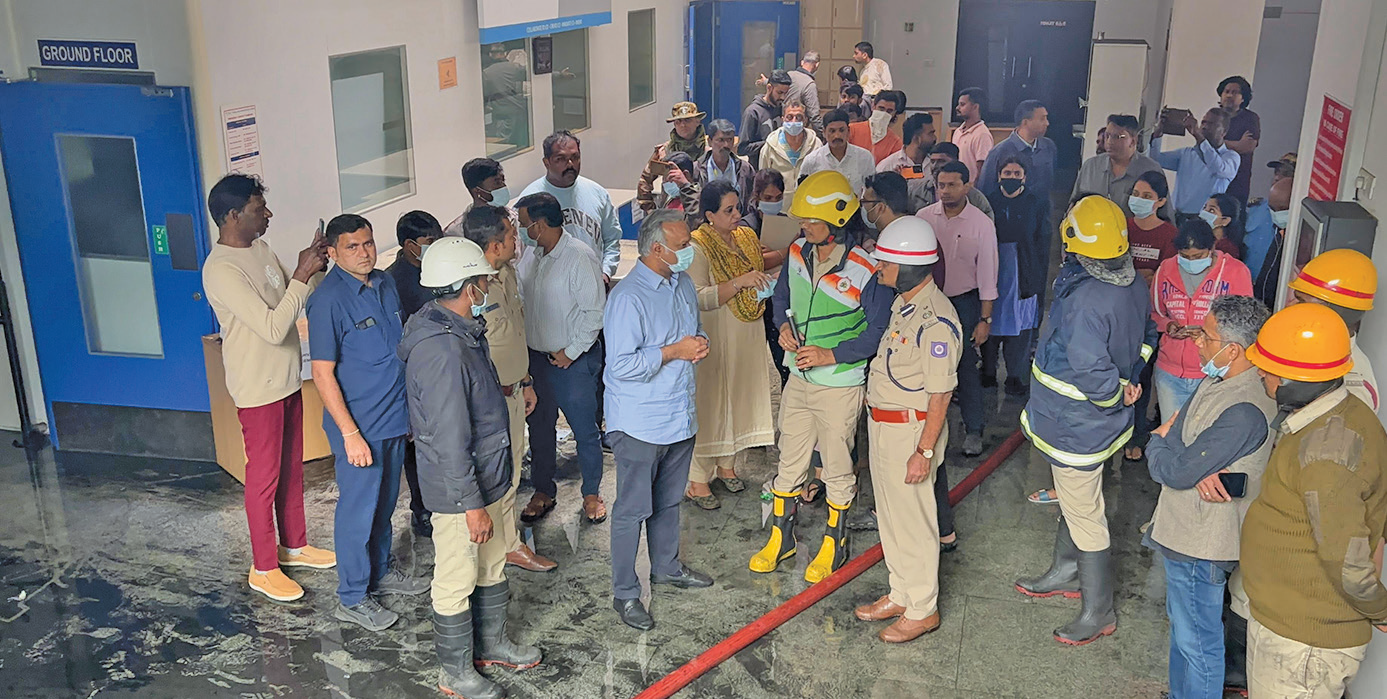
Cardiac arrest of 8-year-old raises concern of sudden cardiac arrest in kids
Bengaluru: On January 7, an eight-year-old girl named Tejaswini from Chamarajanagar, approximately 160 km from Bengaluru, tragically passed away due to sudden cardiac arrest. She was in her school corridor when she felt dizzy and collapsed. Despite receiving prompt medical attention at JSS Hospital, she could not be revived. Sudden cardiac arrest (SCA) in children, though rare, is a devastating event. Dr. Sejal Shah, Senior Consultant in Pediatric Cardiology at Manipal Hospital, Sarjapur, explains that such incidents are often referred to as sudden unexplained death in childhood (SUDC) when they occur after one year of age without an identifiable cause.
The incidence is approximately 1 in 100,000 children. Potential causes include inherited conditions like Long QT syndrome and Brugada syndrome, which affect heart rhythm, as well as cardiomyopathies such as arrhythmogenic right ventricular cardiomyopathy and hypertrophic cardiomyopathy. In some cases, inborn errors of metabolism or coronary artery abnormalities may also be responsible. Dr. Sejal emphasized, “Recognizing warning signs is crucial for early detection and prevention. Symptoms that warrant evaluation include chest pain during exertion, palpitations, dizziness or loss of consciousness, and breathlessness on exertion.” She added that a family history of arrhythmias, cardiomyopathies, or sudden unexplained deaths also necessitates a basic cardiac evaluation for the child.
Genetics play a significant role in these conditions, Dr. Sejal commented, adding, “Targeted genetic testing is available, especially for syndromes like Long QT and Brugada. Genes commonly associated with these cardiac channelopathies include KCNQ1, KCNH2, and SCN5A.” She noted that current recommendations for cardiac screening in children emphasize a detailed medical history and thorough examination to identify potential lethal cardiac conditions. Additional diagnostic tools such as electrocardiograms (ECG), echocardiograms, exercise stress tests, Holter monitoring, and cardiac MRI can provide further insights. “Routine newborn screening tests for inherited and treatable metabolic, blood, and hormonal disorders offer opportunities for early intervention before irreversible damage occurs,” she stressed.
Treatment options vary depending on the underlying heart condition. Medical management is possible for conditions like Long QT syndrome and certain metabolic disorders to reduce the risk of sudden death. Surgical interventions may be necessary for abnormalities such as anomalous coronary arteries. In specific cases, implanting a pacemaker or an automated implantable cardiac defibrillator (AICD) is advised. According to Dr. Sejal, “Diagnosing and treating heart conditions in children present unique challenges. Children may have difficulty articulating symptoms, leading to delays in diagnosis.” There's also a common misconception that children cannot have heart diseases. Limited access to pediatric cardiologists and necessary diagnostic facilities, particularly in rural areas, further complicates timely diagnosis and treatment.
Preventing cardiac problems in children begins even before conception. “Ensuring maternal health, preventing obesity, and maintaining normal blood sugar levels during the first trimester are critical steps for normal cardiac development. Parents should monitor their children for any concerning symptoms and consult a pediatrician when in doubt.” Most cardiac conditions in children are treatable, and with appropriate guidance from a pediatric cardiologist, many children can lead healthy lives. Adopting a healthy lifestyle for both children and parents can significantly impact disease outcomes.
She added, “Schools and communities play a vital role in promoting heart health awareness. Training school staff and older children in basic cardiopulmonary resuscitation (CPR) techniques can be lifesaving in emergencies.” Encouraging a balanced diet, regular physical activity, routine pediatric eck-ups, and good dental hygiene contribute to overall heart health.
 English daily published in Bengaluru & Doha
English daily published in Bengaluru & Doha





